Principles of Design is the fourth unit in the Art Beginnings course. In this unit you will learn how artists use certain principles when making art. These are the basic rules such as balance, emphasis, movement, and pattern that makes a piece of art work. Understanding these rules will help in creating and understanding art. This unit contains sections on:
- Balance
- Emphasis
- Movement
- Pattern
- Proportion
- Rhythm
- Unity
Inside you will find these activities:
- Drawing a teeter totter of balls to explore balance
- Examining the Santa Trinita Maestà painting to learn about symmetry
- Painting apples in two versions, balanced and unbalanced, as you begin to break the rules
- Make a watercolor painting of a pineapple to demonstrate emphasis
- Take a video tour of Francisco Goya’s The Third of May, 1808 to learn about focal points
- Sketch a moving object like a space rocket or a jumping frog to show movement
- Use patterns to create texture in your Art Sketchbook
- Learn the difference between proportion and scale and practice sketching things out of scale or out of proportion
- Make some real-life sized outlines of famous paintings on your driveway in chalk to get a sense of how big they are in real life
- Plus so much more!
Each Layers of Learning Arts unit includes library lists of books, a family read-aloud suggestion, hands-on activities, printables and paper crafts, sidebars for extra learning, and tools to help you assess student’s progress and mastery.
See Inside
Here is a double page spread from Principles of Design.
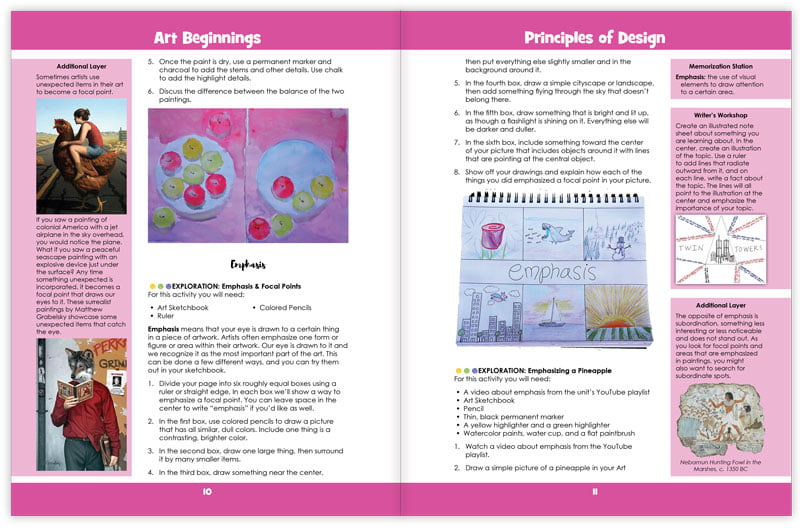
You can see two pages of activities from the middle of the book. The mentor chooses among these activities. The activities serve as mental hooks and learning tools to understand principles.
Students also learn by reading and watching videos.
Sidebars on each page can act as rabbit trails, give quick extra facts, highlight things that are worth memorizing, and give writing ideas and discussion questions.
Flexibility
This unit was written to be used for a month but contains plenty of content for many more weeks of learning if you choose. This is a pick-and-choose curriculum, meant to be cycled back to in the future when your child is older. As such, it intentionally includes far more material than you can possibly cover in a month.
Principles of Design is also part of the overall Art Beginnings course, the first Year of the four year Layers of Learning Arts cycle. If you use the program in order, it will take you though the art in chronological order, tracking with the Layers of Learning History units. However, each unit stands alone and can be used independently of any other unit.
Printable Pack
This unit comes with a downloadable Printable Pack that includes all the student worksheets. The printables can be copied as many times as needed for your family or class.
You can download the Printable Pack from your receipt or from your account at Layers of Learning.
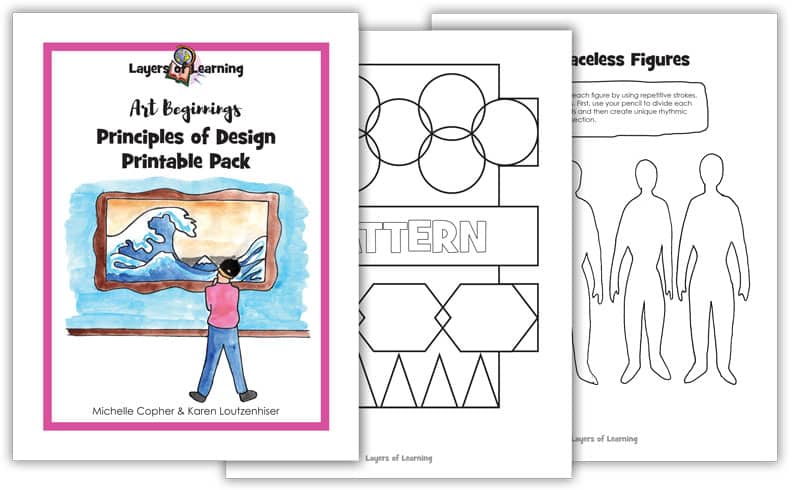
Extra Resources
This unit comes with extra weblinks and a YouTube video playlist on the Art Beginnings Resources page.

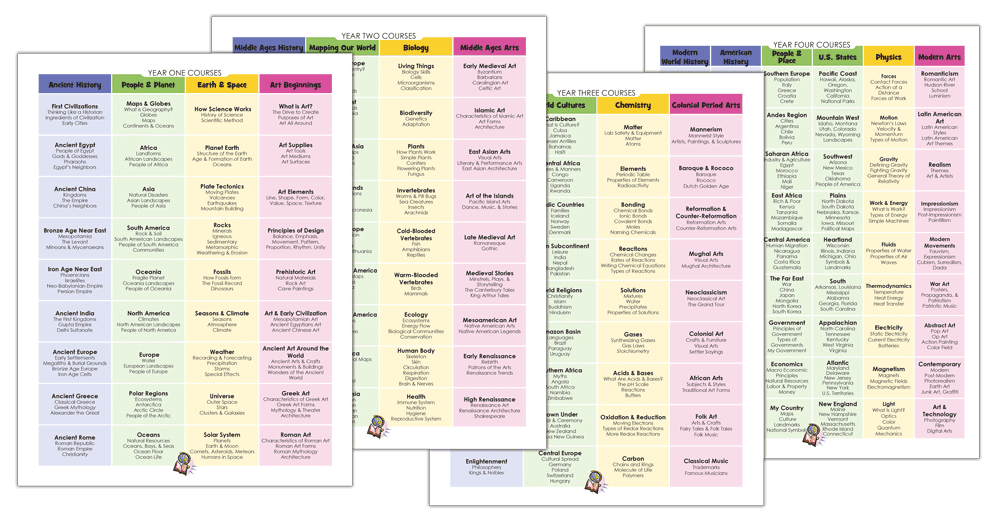
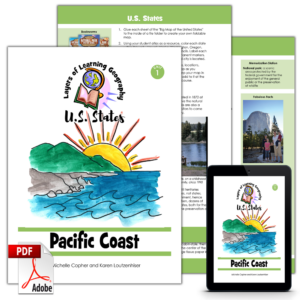






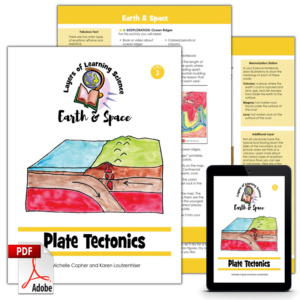


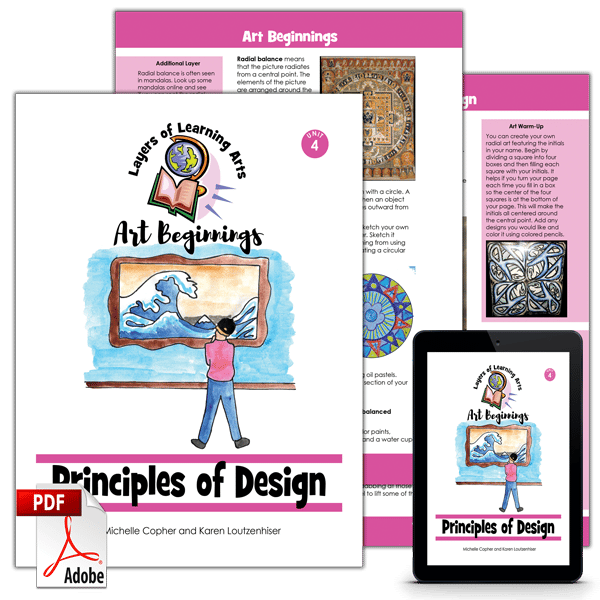


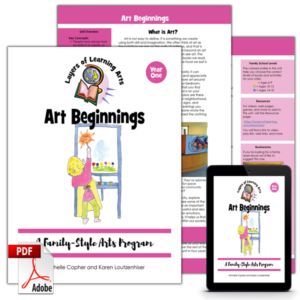
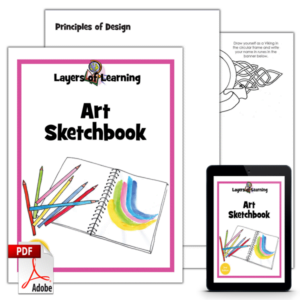
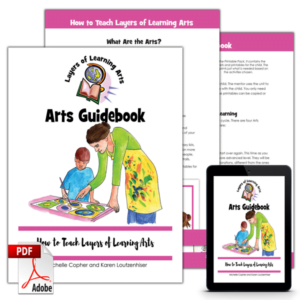
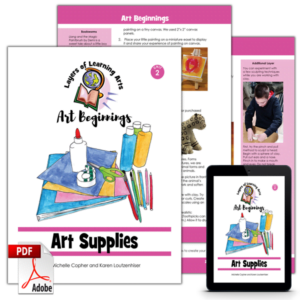
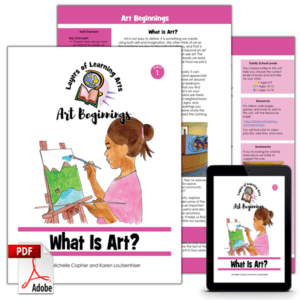

Madeline Stone –
This unit and the one about art elements finally made teaching art to my kids feel important. With past art curriculums it just felt like we were making crafts but now we’re actually learning about art and how and why it’s created. My kids loved the projects and I loved that there was actually a point to it all. We all learned so much from this unit!
katemichelle07 –
It was so cool to come back to early civilizations and see how art has been with humans for a long time